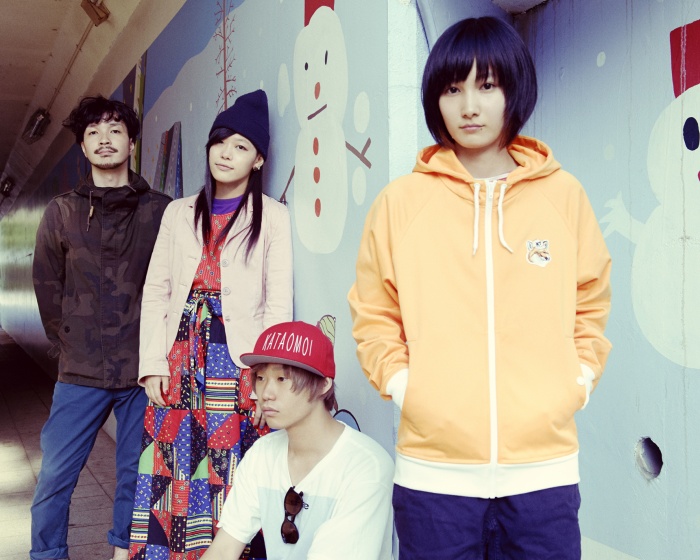One of the most beloved Japanese alternative bands over the better part of the past decade has called it quits. Kinoko Teikoku announced today that bassist Shigeaki Taniguchi decided to leave the band and focus on taking over his family’s temple. Feeling that it wasn’t right to move on with a new bassist, the remaining three members went their own separate ways bringing an end to a twelve year run that saw the band go from indie darlings to major label signees, while also becoming one of the most identifiable Japanese shoegaze acts overseas.
Despite their status abroad as one of the most popular Japanese shoegaze acts – thanks in large part to their spot on Steven Tanaka’s Next Music from Tokyo tour in Canada in 2013 – Kinoko Teikoku was never truly a part of a Japanese shoegaze scene that was taking off on its third and most successful wave, despite a period of activity that aligned perfectly with the domestic shoegaze boom. Within a year of releasing demo EP, “Yoru ga Aketara”, they signed with Daizawa Records, a subsidiary of launchpad indie label UK Project, and released the best material they would ever put out in “Uzu ni Naru”. In 2013, the band released its defining debut album, “Eureka”, and fans of Japanese shoegaze had a new favorite artist. With regard to shoegaze, Kinoko Teikoku’s legacy is centered more around popularizing the domestic scene overseas than any impact they had domestically. They are often cited in shoegaze communities as the band that introduced people to the Japanese scene, but rarely mentioned within the country when talking about influential artists.
Following the release of the “Long Goodbye” EP in 2013, Kinoko Teikoku’s sound shifted from the harsh, 90s US alternative-infused shoegaze that fans had fallen in love with to a more major label friendly pop rock sound. It was shortly thereafter that Kinoko Teikoku was signed to EMI, after which they would release an EP and a handful of albums. The Kinoko Teikoku listening experience shifted from one of anticipation to the hope that the band might roll things back to their past sound. It was never fair, but it was always going to happen. The band’s popularity was finally soaring domestically, and, save for a few creative nods to earlier material, the major label transition was in full force. With each new release came more whiny nostalgia – I accept blame for being part of all of that – and that escalated further when frontwoman Chiaki Sato launched her solo project, which just felt like an extension of the whole change.
In a way, the news that Kinoko Teikoku is over provides a section of a fanbase that was never going to be happy with them again with a sense of relief. The longing for something that was never going to come back is gone. Now we can listen to those first few releases without obnoxiously using them as the standard for future material. And the good news for those devotees who stuck with the band until the very end is that things didn’t end on a sour note. Comments from the members on the band’s site were all very positive, though of course not without the sadness that is expected from a group of people who had been playing together for 12 years. A reunion may not be likely in the near future, but it’s not out of the question.
Kinoko Teikoku has also meant a lot to this site. The band was a big focus of Muso Japan when I started it up in late 2011, and has always been a source of fun and thoughtful discussions. I had the pleasure of seeing them for the first and only time in early 2012 at a small, empty venue in Nagoya, and it will always be one of the most satisfying live experiences in my time in Japan. At their peak, Kinoko Teikoku’s combination of a furious but gorgeous guitar assault and absolutely heavenly vocals resulted in some of the best shoegaze to ever come out of Japan. The band will be terribly missed, but their contribution to the Japanese music scene and the connection they were able to make with fans overseas will not be forgotten.
View this post on Instagram
This is the video that made me fall in love with Kinoko Teikoku for the first time:




